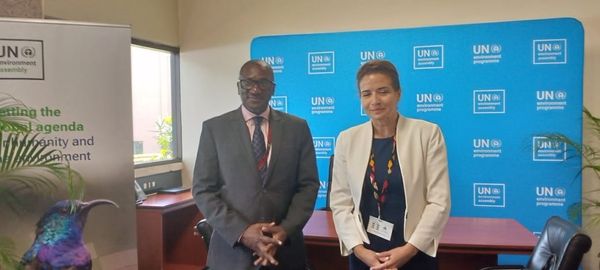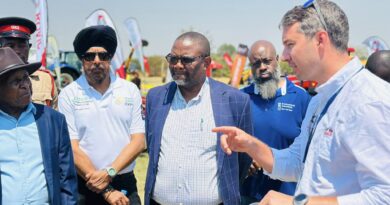Zambia and Morocco Seek Mutual Learning and Cooperation in Green Economy and Sustainable Development
The Minister of Green Economy and Environment, Hon. Eng. Collins Nzovu MP, has underscored the importance of bilateral cooperation between Zambia and Morocco, emphasizing the potential for mutual learning and collaboration in areas such as green economy, climate change, and environmental sustainability.
During a bilateral meeting held at the United Nations Environment Assembly (UNEA-6), Hon. Nzovu engaged with Her Excellency Dr. Leila Benali, the Minister of Energy Transition and Sustainable Development of the Kingdom of Morocco.
He expressed Zambia’s commitment to supporting Morocco’s integrity and sovereignty while highlighting the fruitful development cooperation between the two nations across various sectors including agriculture, renewable energy, education, tourism, and infrastructure.
Hon. Nzovu commended Morocco for its achievements in renewable energy, noting that nearly 100 percent of electricity access in the country is powered by renewable sources such as hydroelectricity, solar, and wind.
He expressed Zambia’s interest in learning from Morocco’s experiences in developing and deploying renewable energy technologies, citing the need for similar advancements in Zambia’s energy sector.
Furthermore, he emphasized the potential for collaboration in e-mobility value chains, leveraging Zambia and Morocco’s abundant reserves of critical minerals like copper, cobalt, and manganese essential for green technology manufacturing.
Hon. Nzovu highlighted ongoing initiatives, including the United Nations Economic Commission for Africa’s project aimed at fostering African Electric Mobility Value Chains, involving Zambia, Morocco, and the Democratic Republic of Congo.
In response, Her Excellency Dr. Leila Benali reiterated Morocco’s commitment to enhancing bilateral cooperation with Zambia, particularly in promoting sustainable development.
She emphasized the importance of partnerships in advancing renewable energy, sustainable mining practices, waste management, and water resource management, all crucial components of the green agenda and sustainable development.



